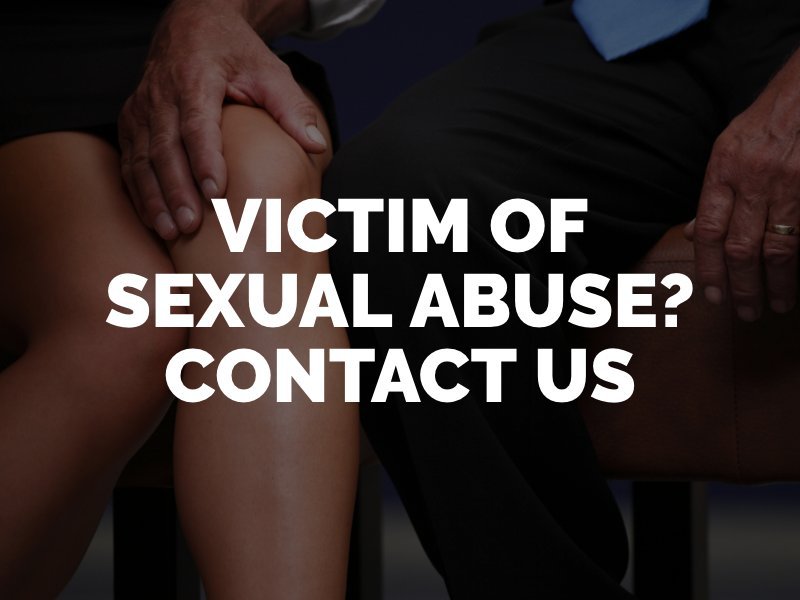Learn How The Finn Law Group’s Sexual Abuse Attorney in Chicago Handles Legal Challenges
Exploring the Extent of Personal Injury Law: What Every Attorney Ought To Know
Injury law stands for an intricate field that every legal representative must browse with accuracy. It encompasses numerous insurance claims, from car mishaps to medical malpractice. A strong grip of oversight and its important components is crucial for efficient advocacy. Additionally, understanding the insurance policy landscape can substantially influence situation outcomes. As the legal process unfolds, the nuances of calculating damages enter into play, raising essential questions that necessitate more exploration.
Recognizing Negligence and Its Components
Although negligence is a basic concept in accident law, several individuals may not fully realize its ins and outs. At its core, negligence includes a failure to work out the level of treatment that a fairly prudent individual would certainly in similar circumstances. This breach of duty can lead to harm or injury to one more person. The components of negligence contain obligation, breach, causation, and damages. Initially, the offender needs to owe a duty of like the complainant. Second, a violation occurs when the defendant falls short to meet that task. Third, causation must establish that the violation directly triggered the complainant's injuries. The plaintiff should demonstrate real problems resulting from the breach. Understanding these elements is crucial for individuals looking for to navigate the intricacies of injury cases, as they form the foundation whereupon lawful responsibility is established in situations of neglect.
Kinds of Injury Claims
Accident cases incorporate a wide variety of legal actions that occur when an individual endures damage as a result of another celebration's negligence or willful misbehavior. Typical kinds of insurance claims consist of auto mishaps, where chauffeurs may be held accountable for injuries caused to others; slip and drop cases, commonly due to hazardous building conditions; and clinical malpractice, which entails doctor failing to satisfy the standard of care, leading to client injury. Additionally, workplace injuries can cause claims against companies for dangerous working conditions. Product liability instances arise when faulty items cause injury to consumers. Various other notable cases include emotional distress and defamation, which deal with mental harm and damage to track record, specifically. Each insurance claim type offers distinct legal challenges and requires a detailed understanding of appropriate legislations and criteria to efficiently represent clients in their pursuit of justice and compensation.
The Role of Insurance in Accident Cases
Insurance policy plays a necessary function in the resolution of accident cases, as it often acts as the main source of compensation for victims. Numerous types of insurance, including liability, health, and uninsured vehicle driver protection, are essential in determining the outcomes of these cases. Responsibility insurance policy generally safeguards accuseds, ensuring they can accomplish their financial commitments to claimants. Medical insurance might cover prompt clinical expenditures, while uninsured vehicle driver protection can provide compensation when the at-fault event does not have insurance coverage.
Insurance business often involve in negotiations with damaged events or their legal reps, influencing negotiation amounts. The existence of insurance policy can accelerate the resolution procedure, as it offers a clear device for payment. Nonetheless, the intricacies of plan limitations and insurance coverage exclusions can additionally complicate cases, needing lawyers to browse these intricacies efficiently. Recognizing the duty of insurance policy is necessary reference for legal representatives dealing with personal injury insurance claims.
Determining Problems: Economic vs. Non-Economic
The resolution of injury situations frequently hinges on properly computing problems, which can be categorized into two primary kinds: non-economic and financial. Financial problems describe measurable losses, such as medical costs, lost earnings, and residential or commercial property damage. Chicago. These damages are normally supported by billings, pay stubs, or other financial records, making them easier to substantiate and determine

Browsing the Legal Refine: Secret Actions and Considerations
Just how does one effectively navigate the lawful process adhering to a personal injury incident? The initial step includes gathering thorough proof, consisting of clinical documents, photographs, and witness declarations. This documents is vital for corroborating cases. Next off, seeking advice from a certified accident lawyer can provide vital guidance with the complexities of the legal landscape.
Suing within the ideal statute of constraints is important, as delays can endanger the instance. Additionally, recognizing the difference between going after and bargaining settlements lawsuits is critical; many cases are solved outside of court. If lawsuits is essential, planning for exploration, depositions, and trial becomes critical.
Maintaining open interaction with lawful advice and being conscious of potential psychological and monetary stresses will certainly aid customers navigate this strenuous journey extra successfully. Each step calls for cautious consideration to optimize potential recovery and assure a reasonable outcome.
Frequently Asked Concerns
For how long Do I Have to Submit a Personal Injury Claim?
In most territories, people usually have 2 to 3 years to file a personal injury claim. Nevertheless, this timeframe can differ based on certain situations, so speaking with a lawful specialist is a good idea for accurate assistance.
What Is the Law of Limitations for Accident Instances?
The statute of restrictions for injury cases normally varies from one to six years, depending upon the jurisdiction. Chicago. This time frame figures out for how long check this a person has to file an insurance claim after an injury happens
Can I Seek a Claim Without Hiring a Lawyer?
Yes, individuals can pursue an accident claim without employing an attorney. Maneuvering via lawful complexities, due dates, and required paperwork may prove challenging, possibly affecting the result of the insurance claim and recovery of problems.
What Proof Is Essential in an Injury Case?
Important proof in an individual injury situation consists of clinical documents, mishap records, witness statements, photos of the scene, and paperwork of expenditures. This evidence supports cases, establishes liability, and demonstrates the level of injuries endured.

Exactly How Does Relative Negligence Impact My Insurance Claim?
Comparative oversight reduces an insurance claim's payment based on the injured celebration's percent of mistake. For example, if deemed 30% liable, the awarded damages lower by that percentage, influencing the general healing quantity notably.
Individual injury insurance claims encompass a wide range of legal actions that arise when an individual suffers damage due to another celebration's neglect or willful misbehavior. Insurance plays a necessary duty in the resolution of individual injury situations, as it typically serves as the key resource of compensation for injured parties. The resolution of personal injury cases typically hinges on accurately calculating damages, which can be categorized right into two main types: financial and non-economic. In many jurisdictions, people commonly have two to 3 years to submit a personal injury case. Yes, individuals can seek an individual injury insurance claim without employing a lawyer.